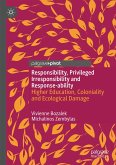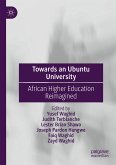In the last two decades, we have witnessed the quest for decolonization; through research, writing, teaching, and curriculum across the globe. Calls to decolonize higher education have been overwhelming in recent year. However, the goal of decolonizing has evolved past not only the need to dismantle colonial empires but all imperial structures. Today, decolonization is deemed a basis for restorative justice under the lens of the psychological, economic, and cultural spectrum. In this book, the editor and her authors confront various dimensions of decolonizing work, structural, epistemic, personal, and relational, which are entangled and equally necessary. This book illuminates other sites and dimensions of decolonizing not only from Africa but also other areas. This convergence of critical scholarship, theoretical inquiry, and empirical research is committed to questioning and redressing inequality in contemporary history and other African studies. It signals one of many steps in a bid to consultatively examine how knowledge and power have been both defined and subsequently denied through the sphere of academic practice.
Dieser Download kann aus rechtlichen Gründen nur mit Rechnungsadresse in A, B, BG, CY, CZ, D, DK, EW, E, FIN, F, GR, HR, H, IRL, I, LT, L, LR, M, NL, PL, P, R, S, SLO, SK ausgeliefert werden.









